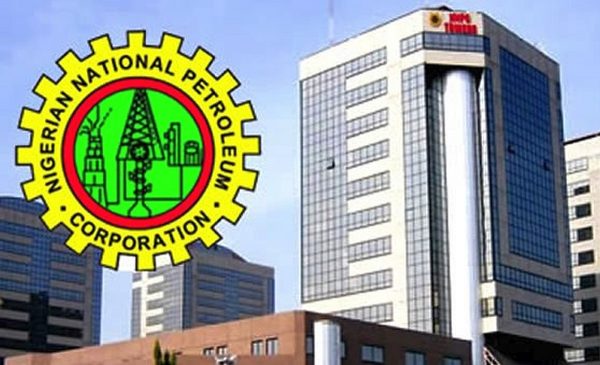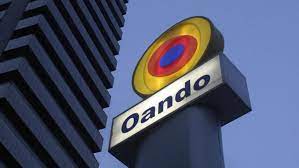Oil & Gas
Pipelines Rehabilitation Contracts Award Based on Evaluation Criteria, Industry Norms – NNPC Ltd

The Nigerian National Petroleum Company Limited (NNPC Ltd) has clarified that the contracts for pipeline rehabilitation were awarded based on evaluation criteria and in accordance with industry standards.
The management of the NNPC Limited made this known in a statement on Sunday while reacting to reports in some section of the media alleging underhand dealings in the contract award.
It said the contracts, which were advertised, were awarded based on rigorous evaluation criteria and in line with industry norms.
“The attention of the NNPC Ltd has been drawn to reports in an isolated section of the media alleging underhand dealings in the award of contracts for the rehabilitation of pipelines across the country.
“It is crucial to provide accurate information to address any misconceptions and ensure transparency in our operations.
“We would like to state categorically that these reports are fallacious and designed to bring the good name of the Company into disrepute.
“NNPC Limited is deeply committed to adhering to the highest standards of transparency and global best practices in all our activities, and this includes our contracting process,” it said.
The NNPC Limited, while re-emphasising its commitment to transparency, said it subjected the selection process to a competitive tender guided by Bureau of Public Procurement standards, Infrastructure Concession Regulatory Commission expertise, and the active involvement of a Transaction Advisor.
It said it also had representations from NEITI and the Ministry of Justice in the project development team and the evaluation exercise.
It listed the composition of Consortium members per lot spread across Nigeria.
“LOT 1: Oilserve Ltd, Chu Kong Steel Pipe Group Company Ltd, Saudi Crown Oilserve.
“LOT 2: MacReady Oil and Gas Services, COBRA Instalicios S.A, Control Y Montajes Industriales and International De Pipelines, Iron Products Industries Ltd, Batelitwin Global Services Ltd, Bauen Empresa Constructora SAU, Sanderton Energy Ltd, The Spanish National Association of Manufacturers.
“LOT 3: A A Rano, Zakhem Construction Nigeria, Bablinks Resources Ltd, VAE Controls S.R.O and LOT 4: MRS Oil and Gas, CPPE Nigeria Ltd
“It is imperative to emphasise that these contracts are Build, Operate and Transfer agreements, and selected partners are to finance the rehabilitation and do not entail the transfer of control of these assets to any particular company,” it said.
It said its objective was to enhance the integrity and functionality of the pipelines to facilitate the efficient transportation of crude oil to refineries and the distribution of its products across the country.
According to the NNPC management, the ownership of these strategic national assets remains with NNPC Limited, and are fully committed to ensuring their continued operation in the interest of over 200 million Nigerians.
It would be recalled that some sections of the media recently alleged that NNPC Ltd has awarded juicy rehabilitation contracts of the nation’s pipelines to four oil companies, including two downstream retailers. (NAN)
NEWS
NGEP Urges Gas Reticulation In Buildings

By Olasunkanmi Onifade
Abuja, April 29, 2025 The National Gas Expansion Programme (NGEP) has called on stakeholders to promote the integration of gas reticulation systems in estates, districts, and industrial areas, following best practices seen in developed countries.
Chairman of NGEP, Prof.
Mohammed Ibrahim, made the call on Tuesday during the Builders’ Conference and Annual General Meeting of the Nigerian Institute of Building (NIOB), FCT Chapter, in Abuja.The conference, themed “Gas Reticulation in Building: Design, Safety, Environmental Compliance and Prospects for Builders,” focused on enhancing energy infrastructure in Nigeria’s built environment.
Ibrahim noted that with Nigeria’s vast natural gas reserves, gas reticulation offered a sustainable solution to improve energy accessibility, affordability, and reliability in homes and businesses.
“Gas reticulation in buildings presents a compelling pathway to a more sustainable, efficient, and resilient built environment.
“By prioritising sound design principles and ensuring strict adherence to safety and environmental standards, we can unlock the full potential of natural gas to drive progress,” he said.
He highlighted the key benefits of gas reticulation, including energy efficiency, cost effectiveness, versatility, and reliability.
Also speaking, the Chairman of the Council of Registered Builders of Nigeria, Samson Opaluwah, stressed the importance of capacity building for safe and efficient gas distribution.
He said this involved training engineers, technicians, and other professionals in system design, installation, and maintenance, while also strengthening regulatory frameworks and encouraging local innovation and manufacturing.
The Chairman of NIOB, FCT Chapter, Usman Okehi, emphasised the growing need to incorporate gas systems in residential, commercial, and industrial developments across Nigeria due to rising energy demands and gas availability.
According to him, with this advancement comes the need for strict adherence to design standards, rigorous safety protocols, and full environmental compliance.
“It is our responsibility as professionals and regulators to ensure these systems are functional, safe, and environmentally sound,” Okehi said.
He described the conference as a platform where stakeholders could explore the evolving landscape of gas infrastructure in building projects, share best practices, examine safety and environmental considerations, and assess future opportunities for builders in the sector.
The News Agency of Nigeria (NAN) reports that the Nigerian Institute of Building is the professional body for builders in Nigeria. It traces its origins to the Builders’ Society, established in London in 1834.
Oil & Gas
FG Inaugurates Committee to Enhance Gas Distribution in Urban Buildings

The Ministry of Petroleum Resources has inaugurated a Technical Working Group to enhance gas reticulation practices in Nigeria’s building industry.
The ministry’s Permanent Secretary, Amb. Nicholas Ella inaugurated the Technical Working Group (TWG) between the National Gas Expansion Programme (NGEP) and the Council of Registered Builders of Nigeria (CORBON) on Wednesday.
Reports= says that reticulation refers to the process of creating a network of pipes or tubes to distribute gas or other utilities to buildings or industrial sites.
The permanent secretary restated the importance of creating energy smart cities, saying that modern urban development relies on efficient gas and utility distribution systems,
“Most modern cities in developed countries have evolved to energy smart cities where energy, specifically gas and other utilities are piped to districts and estates.
“However, one of the key tools in creating energy smart city is the National Building
Code which, in essence, sets the guidelines on Building Pre-design, designs, construction and post-construction stages,” he said.
The permanent secretary reiterated the benefits of reticulated gas systems for households and businesses alike, adding that it ensured metered supply akin to water and electricity,
According to him, it eliminates the need for cumbersome refills, and also enhances safety by burying pipes and incorporating advanced safety equipments.
“The TWG is tasked with designing a comprehensive policy to implement best practices for gas reticulation using LPG, PNG, and Bio-Gas across Nigeria’s building sector.
“Key responsibilities include reviewing the current National Building Code, examining global gas distribution systems, and proposing quality standards for materials used in gas installations,” he said.
The permanent secretary emphasised the need for rigorous safety protocols and guidelines to ensure the efficient and safe use of gas in construction.
He urged the group to prioritise environmental sustainability in its recommendations, adding that the group is expected to submit its report by Nov. 15.
Earlier, Mr Samson Opaliwah, the Chairman of CORBON. expressed the council’s commitment to collaborate with the group to ensure safe uptake of gas for use in houses and housing estates in Nigeria.
“I assure you of the williness of CORBON to leverage the expertise and resources at her disposal to ensure that steps are put in place for gas infrastructure in buildings and estates.
“The gas infrastructure will be safe, sustainable and world-class.
” Our collective efforts will yield clear, standardised guidelines for safe and effective gas systems in buildings, matched with a skilled workforce to meet growing demands in Nigeria,” he said. (NAN)
Oil & Gas
Utilise Oil, Gas Industry Report as Tool for Public Debate – NEITI

The Nigeria Extractive Industries Transparency Initiative (NEITI) has urged stakeholders to utilise its 2022/2023 oil and gas report for civic engagement, constructive dialogue, and public debate.
Executive Secretary of NEITI, Dr Orji Ogbonnaya Orji, made the call at the report’s public presentation on Thursday in Abuja.
The report was unveiled by Mr Ola Olukoyede, Chairman, Economic and Financial Crimes Commission (EFCC), alongside Sen.
George Akume, Secretary to the Government of the Federation and Chairman, NSWG, NEITI and other dignitaries.Orji emphasised the report’s significance in guiding policy, encouraging public debate, and improving governance in natural resource management.
He highlighted the report’s comprehensive data on revenues, governance structures, operations, and compliance within the oil and gas sector.
Speaking at the public presentation of the report, Akume reaffirmed the Federal Government’s commitment to transparency principles.
Olukoyede pledged to investigate the report’s findings and recommendations, noting that NEITI’s previous reports led to the recovery of over N1 billion.
The report is available on NEITI’s website, providing valuable insights into the sector’s performance and challenges.
The presentation was attended by Chairmen of National Assembly Committees, captains of industries, members of diplomatic missions, development partners, civil society organisations and the media. (NAN)

























